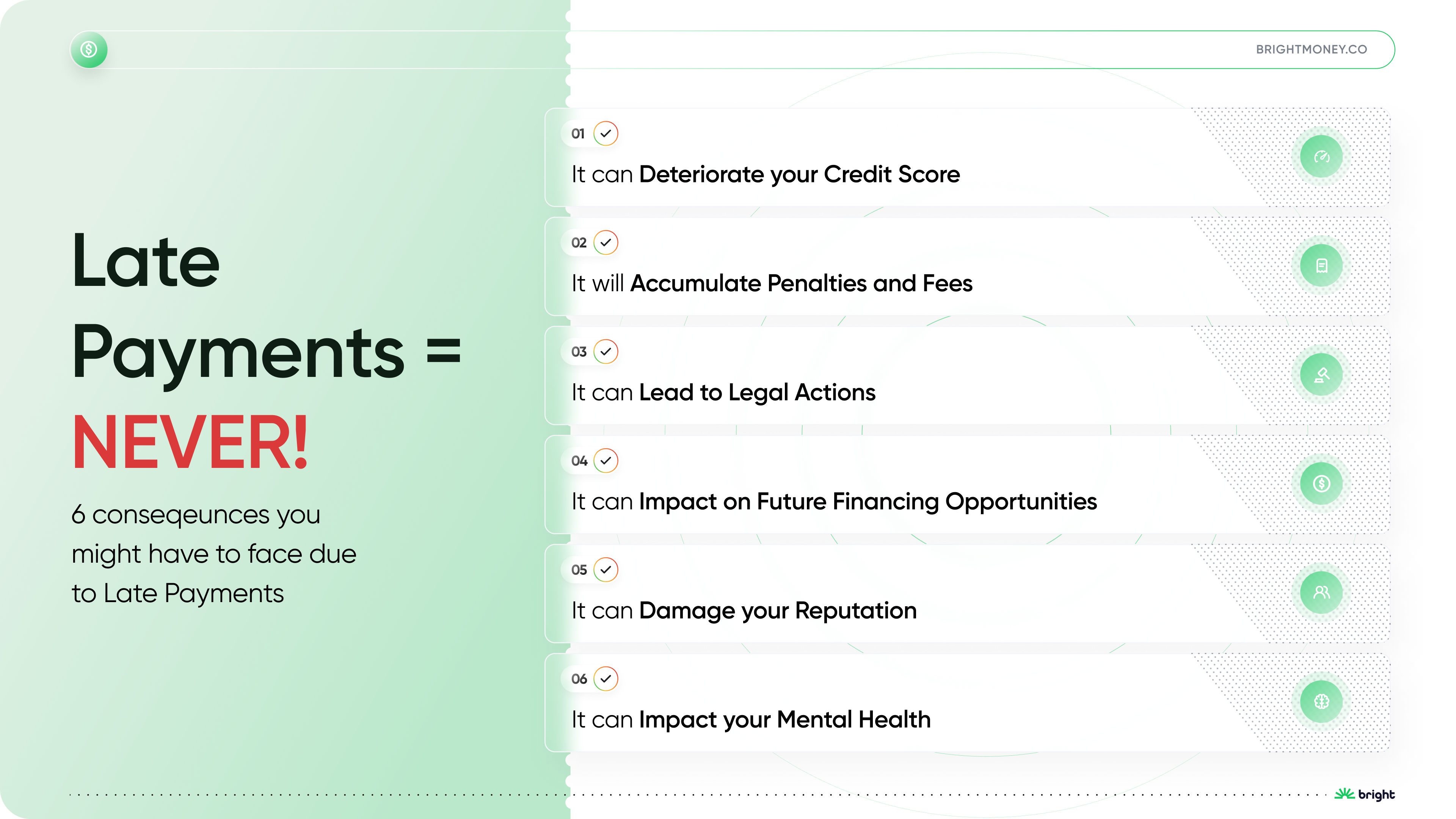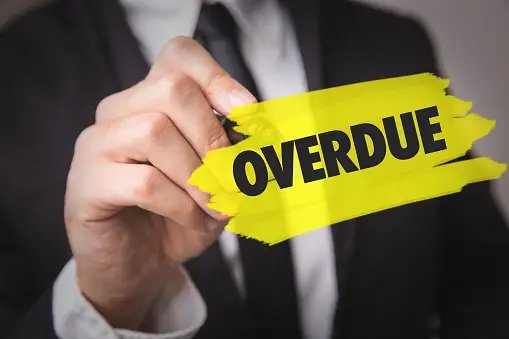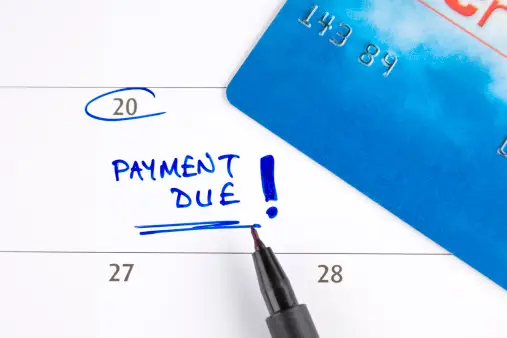You are now leaving the Bright website and entering a third-party website. Bright has no control over the content, products, or services offered, nor the security or privacy of information transmitted to others via their website. We recommend that you review the privacy policy of the site you are entering. Bright does not guarantee or endorse the products, information, or recommendations provided on any third-party website.
Late payments can have significant ramifications for individuals and businesses alike. This article will delve into the various consequences of delayed payments and back our claims with relevant statistics.
So, if you're an individual dealing with financial commitments, understanding the potential impacts of late payments is crucial.
We recommend you first read about Why your payment date is important on your credit cards by Bright Money to get a better understanding of what its consequences are!
The Deteriorating Effect on Credit Score
One of the most critical consequences of late payments is the detrimental impact on one's credit score. For individuals, a credit score serves as a measure of creditworthiness, influencing their ability to obtain loans, credit cards, or favorable interest rates. Each late payment can lead to a drop in the credit score, making it challenging to secure future financial opportunities.
According to a study conducted, late payments can cause a significant decline in credit scores. Even a single late payment can result in a drop in credit score of up to 100 points, depending on the individual's credit history and the severity of the delay.

Accumulating Penalties and Fees
Late payments can lead to a snowball effect of accumulating penalties and fees. Whether it's a credit card bill, loan installment, or utility payment, most creditors impose penalties for late payments. These fees can quickly add up, amplifying the financial burden on the individual or business.
For businesses, the financial strain caused by accumulated penalties can lead to difficulties in meeting other essential financial obligations, potentially resulting in a downward spiral of financial instability.
Legal Actions and Debt Collection
In more severe cases of persistent late payments, creditors may resort to legal actions and debt collection to recover their dues. This can escalate into a legal battle or even result in wage garnishment for individuals. For businesses, it could lead to a lawsuit, which can be not only expensive but also damaging to their reputation.
According to a survey conducted by a national debt collection association, a significant number of businesses resort to third-party debt collection agencies when facing late payments. The study also revealed that approximately 23% of individuals with debt had been sued by creditors.
Impact on Future Borrowing and Financing Opportunities
When people or organizations look for future borrowing or financing options, late payments may be a nightmare. Lenders and financial institutions carefully review credit history to assess the risk that is associated with potential borrowers. A track record of late payments can raise red flags and reduce the chances of obtaining loans or securing favorable terms.
According to a survey, in 2019, about 20% of loan applicants in the United States were denied credit due to negative information on their credit reports, such as late payments or delinquencies.
Damage to Personal Reputation
Beyond the financial consequences, late payments can significantly impact personal and business reputations. For individuals, a history of late payments can lead to a negative perception among friends, family, and colleagues. For businesses, it can result in negative online reviews, damaging the brand's image and credibility.
A research report highlighted that businesses with a reputation for delayed payments experienced a 30% drop in customer trust and loyalty.
Stress and Mental Health Impact
The mental health of an individual may suffer from late payments. Stress and worry caused by financial instability can result in sleep difficulties, decreased productivity, and even depression.
According to a survey, 72% of adults reported feeling stressed about money at least some of the time, and 22% said they experienced extreme stress due to financial concerns like late payments.

How to Remove Late Payment from Credit Report?
Removing a late payment from your credit report can be challenging, but it's worth exploring your options. Here are some steps you can take:
- Review Your Credit Report:
Obtain a copy of your credit report from all three major credit bureaus (Equifax, Experian, and TransUnion). Carefully review the report to ensure the late payment entry is accurate and not a result of an error or identity theft.
- Dispute Inaccurate Information:
If you find any inaccuracies or errors regarding the late payment entry, dispute them with the credit bureaus. You can do this online, by mail, or over the phone. The credit bureaus will investigate the dispute and correct any errors if found.
- Goodwill Letter:
If the late payment was a one-time occurrence due to a genuine mistake or financial hardship, you can write a goodwill letter to the creditor. In the late payment removal letter, explain the circumstances that led to the late payment and request the creditor to remove the negative entry as a gesture of goodwill.
- Negotiate a "Pay for Delete" Agreement:
In some cases, you may negotiate a "pay for delete" agreement with the creditor. This involves paying the outstanding debt in full or settling for a lesser amount in exchange for the creditor removing the late payment entry from your credit report.
- Credit Repair Companies:
Consider seeking assistance from reputable credit repair companies. These companies can work on your behalf to dispute inaccuracies and negotiate with creditors to remove negative entries, including late payments.
Addressing Late Payments - Tips and Best Practices
Now that we've explored the potential consequences of late payments, discussing ways to prevent and address these issues is essential. Here are some tips and best practices for individuals:
- Setting up automatic payments to avoid forgetting payment due dates: Setting up automatic payments or reminders ensures that bills and payments are made on time without the need for manual intervention. This minimizes the risk of missing due dates and incurring late payment penalties. For this, Apps like Bright Money come very handy!
- Create a budget to manage finances effectively and allocate funds for timely payments: A budget helps people track their income and expenses, allowing them to allocate sufficient funds for essential payments. By prioritizing payment obligations, they can avoid financial strain and ensure timely payments.
- Communicate with creditors if facing financial difficulties to explore alternative payment arrangements: During financial hardships, it's essential to communicate with creditors and explain the situation. Many creditors may be willing to work out alternative payment arrangements, such as extended payment terms or reduced amounts, to accommodate the individual's situation.
- Monitor credit reports regularly to identify and correct any errors promptly: Regularly checking credit reports helps individuals stay informed about their credit history and detect any inaccuracies or errors that could negatively impact their credit score. Correcting these errors promptly ensures a more accurate credit profile.
- Seek professional financial advice when facing overwhelming debt situations: In cases where an individual is overwhelmed by debt, seeking professional financial advice from experts, like financial advisors or credit counselors like Bright Money, can provide valuable insights and strategies to manage the debt effectively and work towards a more stable financial future.

Conclusion
In conclusion, the consequences of late payments can be far-reaching, affecting credit scores, financial stability, and even mental health. For individuals and businesses, proactive measures to avoid late payments are essential to safeguard their reputation, maintain strong relationships with creditors, and secure future financial opportunities.
By understanding the potential pitfalls of late payments and implementing best practices, individuals and businesses can steer clear of these repercussions and pave the way towards financial success and stability.
Recommended Reads:
Credit-Building: Non-Credit Card Approaches
How Eco-Friendly Choices Improve Your Credit Score?
FAQs
- How long does a late payment stay on credit report?
A: Late payments can stay on your credit report for up to seven years from the date of the missed payment. The impact of late payments on your credit score gradually diminishes over time, but the entry remains visible to potential lenders and creditors during this period. It is essential to prioritize making timely payments to maintain a positive credit history and improve your creditworthiness over time.
- Do late payments affect borrowing and financing opportunities in the future?
A: Yes, late payments can haunt individuals and businesses when seeking future borrowing or financing opportunities. Lenders often review credit history, and a history of late payments can decrease the chances of loan approval.
- Can late payments damage personal and business reputations?
A: Absolutely. Late payments can negatively impact personal and business reputations, leading to a loss of trust from friends, family, customers, and suppliers.
- What is the psychological impact of late payments on individuals?
A: Late payments can cause significant stress and anxiety, leading to sleep disturbances, reduced productivity, and potential mental health issues like depression.
- How do late payments affect the economy as a whole?
A: Late payments can have broader economic implications. When businesses face cash flow issues due to delayed payments, they may delay payments to their suppliers, creating a chain reaction throughout the economy.
- What strategies can businesses adopt to prevent late payments?
A: Businesses can implement efficient invoicing and payment reminder systems, offer incentives for early payments, negotiate favorable credit terms with suppliers, analyze cash flow regularly, and develop contingency plans to manage late payments.
- What should individuals and businesses do if they are already facing late payment issues?
A: If facing late payment issues, individuals should communicate with creditors and seek alternative payment arrangements. Businesses should also maintain transparent communication with suppliers and clients and explore ways to manage financial challenges.
- How can individuals and businesses rebuild their credit after late payment incidents?
A: Rebuilding credit after late payment incidents involves establishing a track record of timely payments, reducing debt, and practicing sound financial habits.
- What steps can businesses take to prevent late payments from clients?
A: Businesses can set clear payment terms, issue timely invoices, follow up with clients on payment status, and offer multiple payment options to encourage on-time payments.
- Are there any resources or organizations that can help individuals and businesses deal with late payment issues?
A: Yes, there are various financial counseling services and companies that can provide assistance and guidance to individuals and businesses facing late payment challenges.
- Is it possible to negotiate with creditors regarding late payment penalties and fees?
A: Yes, in some cases, individuals and businesses may be able to negotiate with creditors to waive or reduce late payment penalties and fees. Clear communication is crucial in such situations.
- Can businesses take legal action against consistently late-paying clients?
A: Yes, businesses have the option to pursue legal action against clients who consistently fail to make payments on time. Consulting with legal counsel is advised in such circumstances.
- What are the long-term effects of late payments on an individual's financial health?
A: The long-term effects of late payments can include reduced creditworthiness, limited access to financial opportunities, and challenges in achieving financial goals.
- Is it possible to recover financially after facing severe late payment consequences?
A: Yes, with disciplined financial management, timely payments, and a focus on rebuilding credit, individuals and businesses can recover financially after facing severe late payment consequences.
References:
- https://innovation-entrepreneurship.springeropen.com/articles/10.1186/s13731-021-00191-3
- https://www.apa.org/news/podcasts/speaking-of-psychology/financial-stress
- https://www.mckinsey.com/~/media/mckinsey/industries/public%20and%20social%20sector/our%20insights/customer%20experience/creating%20value%20through%20transforming%20customer%20journeys.pdf
- https://www.newyorkfed.org/newsevents/news/research/2020/20201117
- https://www.accaglobal.com/content/dam/acca/global/PDF-technical/small-business/pol-tp-elp-1stock.pdf



